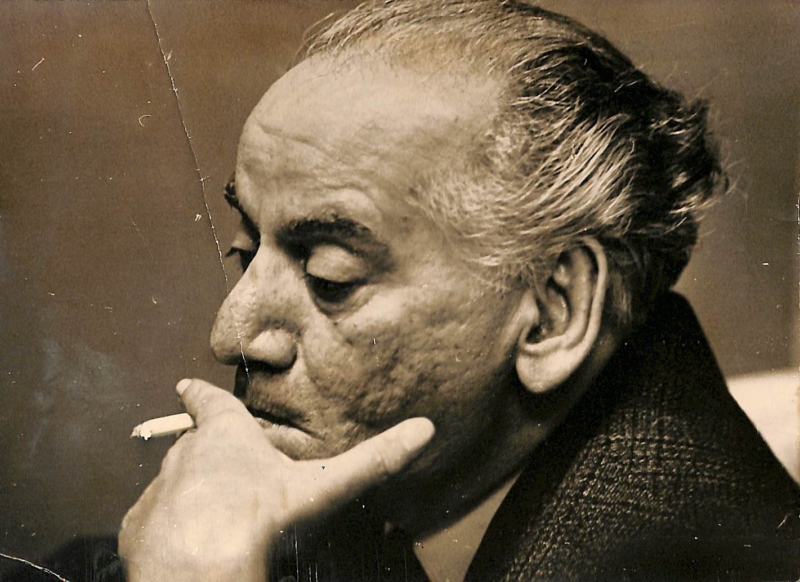Most of us recognize Faiz Ahmed Faiz for his immortal poetry. Few are aware that Faiz Ahmed Faiz was also a prolific prose writer and that too in English. In 1947, he was asked by the great progressive of his times, Mian Iftikharuddin, to edit The Pakistan Times. In addition, Faiz was made the head of the editorial board of the Urdu daily Imroze and was also associated with the literary weekly Lail-o-Nahar.
This foray into journalism came after a five-year stint with the welfare department of the British Army that hired Faiz in 1942 for its publicity wing. This decision to join the army was made due to his clear stance against fascism.
After Independence, Faiz Ahmed Faiz wrote for The Pakistan Times for four years until 1951, when he was arrested for supporting the Rawalpindi Conspiracy. Faiz wrote extensively on a variety of issues in the voice of a conscientious commentator. The writer was less of a revolutionary and more of a journalist trying to pursue a balance.
In an editorial dated September 13, 1948, Faiz Ahmed Faiz paid rich tributes to Jinnah, the founder of the nation. He also added how India and Pakistan in quick succession lost two great leaders Jinnah and Gandhi. Faiz had termed Gandhi’s assassination in an earlier editorial as one of the darkest crimes in history andcomparable only to the crucifixion of Jesus.
In an editorial dated March 23, 1949 Faiz Ahmed Faiz wrote that the Partition of India was more of a horizontal division so the divided halves could develop an internal harmony that the undivided whole lacked. This holds true even today as seven decades later, the two halves continue to bicker.
Like his friend and colleague Iftikharuddin, Faiz was keen to emphasize on the inalienable rights available to Pakistanis. Both urged the new state to be a progressive welfare state. Iftikharuddin was an advocate of land reforms and argued that refugees from India should be allotted evacuee property according to their needs and not on the basis of what they had left behind. In 1951, he opposed the draconian Public Security and Safety Ordinance that hit civil liberties. Labour leaders, intellectuals and other dissenters were later arrested under this law. Not surprisingly, Iftikharuddin was thrown out of the Muslim League. The 2014 Pakistan Protection Act contains similar provisions with wide-ranging powers with the state to arrest citizens for the security of the country.
Commenting on the public safety law, Faiz Ahmed Faiz wrote in 1951 that it is a dangerous weapon and is not a fit thing for children or sadists to play with.
Faiz’s work as a hardcore journalist ended in 1951 when he was jailed. The newspapers that gave Faiz Ahmed Faiz an appropriate platform were nationalized later by General Ayub Khan after he seized the reins of power in 1958. For the next few decades, Faiz Ahmed Faiz was either in exile or wandering as his famous line meray dil, meray musafir (my heart, my traveller) indicates. During Bhutto era, Faiz Ahmed Faiz took a few assignments, such as heading the Pakistan National Council of the Arts, where he drafted the Culture Policy emphasizing Pakistan’s diversity and pluralism.
Faiz’s prose has been compiled but in a patchy fashion. It needs to be revisited, for it provides a window into what Pakistan could have been. The idea of a social democratic Pakistan remains as valid and distant as before.



